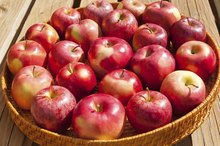Can Oranges Be a Natural Laxative?
Constipation is a common problem that most people experience at some time. Infrequent bowel movements can cause discomfort. Although many people turn to laxatives for relief of occasional constipation, certain foods can provide a natural method of resolving and preventing constipation. Although oranges and other citrus fruits aren’t true laxatives, they contain a substance that can help keep your bowel movements regular and your stool soft.
Constipation
Constipation is a gastrointestinal condition that alters the normal frequency of your bowel movements. People with constipation tend to pass fewer than three stools per week. Bowel movements may cause discomfort due to the hard, dry texture of your stool. Having to strain to pass a bowel movement is a common symptom of constipation. Left untreated, this condition may increase your risk of developing fecal impaction, rectal prolapse and hemorrhoids.
Laxatives
Watery Stool, Diarrhea, Gas, Bloating & Fiber in Food
Learn More
Laxatives can lead to easier bowel movements, but the frequent use of laxatives can cause lazy bowel syndrome, a condition that occurs when your bowels depend on laxatives for elimination. Laxatives work in a variety of ways. Stimulant laxatives cause your intestines to contract rhythmically, while stool softeners create easier bowel movements by moistening your stool. Some laxatives contain fiber, the same substance in fruit that can help relieve constipation.
Oranges
Reduce constipation by increasing your intake of fresh fruits, as well as other foods that contain fiber, such as vegetables and whole grains. Consuming between 20 and 35 grams of fiber per day can help reduce the risk of constipation. According to the USDA National Nutrient Database, one large orange contains about 4.4 grams of total dietary fiber. This nutritious source of fiber also supplies your body with about 98 milligrams of vitamin C, 333 milligrams of potassium and 74 milligrams of calcium.
Precautions
What Is the Difference Between Miralax & Metamucil?
Learn More
Foods that contain fiber add bulk to the stool and hasten its movement through your intestines, although too much dietary fiber may decrease the effectiveness of certain antidepressant medications, including amitriptyline and doxepin. An excess amount of fiber in your diet may also cause bloating and gas. Eating too much of any single food can decrease your intake of other foods, potentially leading to a nutritional deficiency. Talk to your doctor if you experience frequent constipation or if adding fiber to your diet fails to relieve your constipation.
Related Articles
References
Writer Bio
Laura Wallace Henderson, a professional freelance writer, began writing in 1989. Her articles appear online at Biz Mojo, Walden University and various other websites. She has served as the co-editor for "Kansas Women: Focus on Health." She continues to empower and encourage women everywhere by promoting health, career growth and business management skills.









